Is it a smart move to ditch the ‘smart’ phone?
“What’s in a name?”, asked Juliet, despairing of the feud between the Montagues and the Capulets. A lot, actually. Charlie Brooker renamed the smartphone the ‘black mirror’ in his Netflix series of the same name, referring to the ominous reflection one sees once the device is turned off, forcing an individual to confront the reality of how long they’ve been staring at a screen.
If the name seems a little bleak, consider this question: if societal pressures were absent and you were given other options for keeping in touch with your child, do you think it is a smart move to give an 11-year-old a smartphone? Given that 97% of 12-year-olds in Britain owning a smartphone, no one would blame you if your immediate answer wasn’t no.
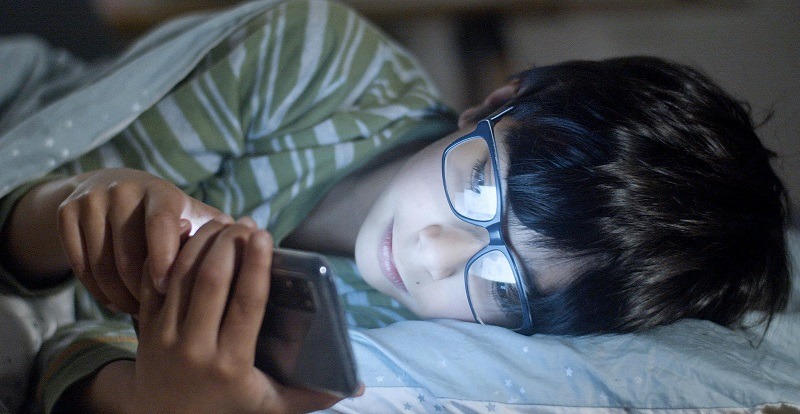
It may feel like an impossible task to go against the tide, but the tide is well and truly turning. In 2024, 77% of parents of primary age children back a ban on smartphones for under-16s, 83% of parents say that smartphones are harmful to children, and 96% of people think the minimum age for social media should be 16 rather than 14. And the tide is turning for good reason.
In 2010, the public didn’t know smartphones and social media had so many harmful effects, but the tech leaders clearly had an inkling that smart tech wasn’t conducive to producing smart kids. As early as 2012, Steve Jobs admitted: “we don’t allow the iPad in the home, we think it is too dangerous.” Founder of Snapchat, Evan Spiegel, only allowed his seven-year-old 1.5 hours of screen time a week. Bill Gates didn’t allow his four children to have smartphones until they were 14 and the founder of The Waldorf, the most sought-after school in Silicon Valley, stated, “tech leaders send their children to the school because keeping them away from tech cultivates the attributes they like to see among their staff – creative thinking, resourcefulness and perseverance.”
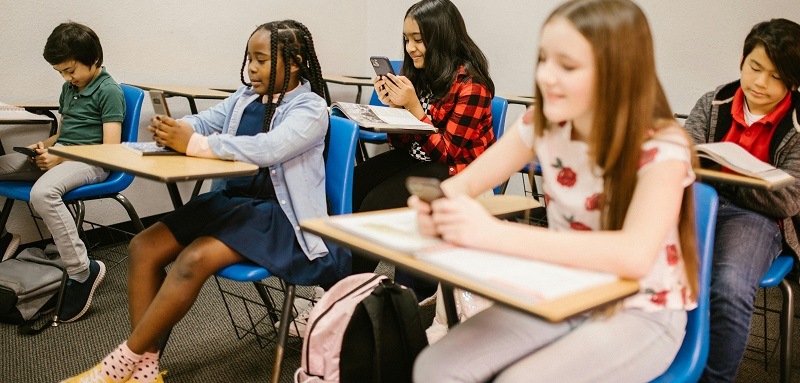 When you stop to consider what a smartphone actually is, is it really surprising that those in the know restricted its use by their own children? Johann Hari, author of Stolen Focus: Why you Can’t Pay Attention, reminds us that smartphones are not really smart tools, but devices designed to “hack and invade our attention”. In the ‘attention economy’, the longer Instagram or TikTok can keep you on their site, the more data they can gather and the more targeted adverts they can put in front of you.
When you stop to consider what a smartphone actually is, is it really surprising that those in the know restricted its use by their own children? Johann Hari, author of Stolen Focus: Why you Can’t Pay Attention, reminds us that smartphones are not really smart tools, but devices designed to “hack and invade our attention”. In the ‘attention economy’, the longer Instagram or TikTok can keep you on their site, the more data they can gather and the more targeted adverts they can put in front of you.
With the average 8–12-year-old spending up to 5 hours per day on devices, a plethora of new words have arisen to expose our smartphone obsessions. In 2015, the Youth Word of The Year in Germany was Smombie, a reference to smartphone users who stagger around like zombies, oblivious to the risks around them. Parents understandably worry about children making their own way home from school but I, personally, would be less worried about my child if they didn’t have a smartphone zapping their attention at road crossings.
In contrast to 2010, by 2024, the evidence against smartphones for children has become overwhelming. In his book, The Anxious Generation, Jonathan Haidt points to a litany of shocking statistics: between 2010 and 2024, major depression among teens went up by 145% among girls and 161% among boys, self-harm incidents in 13–16-year-olds increased by 78% for girls and 134% for boys, and suicides among 10–14-year-olds increased by 134% for girls and 109% for boys.
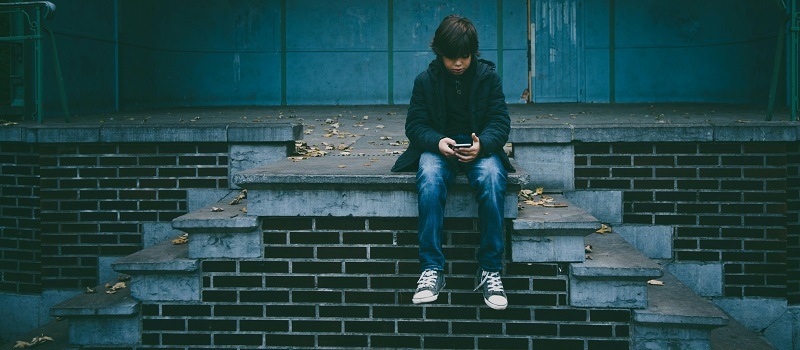
Haidt urges us to take that last statistic on female suicides and cross-reference it with tech developments in case you think the link isn’t there: the oldest members of Gen Z began puberty around 2009 which coincided with the spread of high-speed broadband, the arrival of the iPhone, and the ‘like’ and ‘retweet’ buttons. The trend of increasingly posting images of oneself after smartphones got front-facing cameras (2010) and Facebook acquired Instagram (2012) greatly expanded the number of adolescents posting carefully curated photos for peers and strangers to judge. It’s not just the toxic conditions of social media that are contributing to this mental health crisis amongst teenagers; Haidt aptly names smartphones ‘experience blockers’. Since the daily average time spent with friends down by 65%, an experience blocker, rather than a smartphone, feels a much more genuine name.
Black mirrors, smombies, experience blockers. Smartphones no longer seem so smart to me. But what can parents do in a world in which the government is not doing enough, and tech companies are trying to keep children hooked? Haidt has four suggestions: no smartphones before 14, no social media before 16, phone free schools, and more outdoor play and age-appropriate risk-taking. Luckily for us parents raising children in the UK, a movement dedicated to these norms already exists – Smartphone Free Childhood – and the government is fully behind phone-free schools, having recently issued guidance to help schools that don’t already ban phones during the school day.
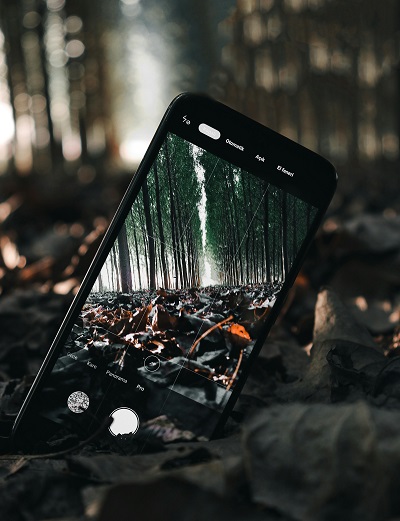 Smartphone Free Childhood is a national movement to empower parent communities to establish new norms around smartphones in their area, a movement in which I am actively involved. I joined my region’s WhatsApp group then, having had a few conversations in the playground, set up a WhatsApp group for my children’s primary school. (Disclaimer: the irony of a WhatsApp group to encourage smartphone-free childhoods is not lost on me but I needed to share the research, share alternatives to smartphones and share next steps!) I’ve also begun to practise a bit of what I preach by going smartphone-free every Sunday (it is absolutely my favourite day of the week) but I’m well aware there is a difficult journey ahead and that the matter is complicated. Children with diabetes who use continuous glucose monitoring, for example, need access to a smartphone within 10 metres of them for their parents to be able to check on their blood glucose remotely. Until a different solution is arrived at, parents of these children may understandably feel differently about no smartphones for under 14s.
Smartphone Free Childhood is a national movement to empower parent communities to establish new norms around smartphones in their area, a movement in which I am actively involved. I joined my region’s WhatsApp group then, having had a few conversations in the playground, set up a WhatsApp group for my children’s primary school. (Disclaimer: the irony of a WhatsApp group to encourage smartphone-free childhoods is not lost on me but I needed to share the research, share alternatives to smartphones and share next steps!) I’ve also begun to practise a bit of what I preach by going smartphone-free every Sunday (it is absolutely my favourite day of the week) but I’m well aware there is a difficult journey ahead and that the matter is complicated. Children with diabetes who use continuous glucose monitoring, for example, need access to a smartphone within 10 metres of them for their parents to be able to check on their blood glucose remotely. Until a different solution is arrived at, parents of these children may understandably feel differently about no smartphones for under 14s.
Furthermore, talking to other parents about smartphones can be tricky. Everyone wants to do the best for their children, and no one wants their child to feel left out. Societal pressure is real. Some parents will tell you that you can’t put the genie back in the bottle, but we have challenged norms and protected our children in the past: after 100 years of driving, doing so without a seatbelt was banned in 1991; after centuries of smoking indoors, it was banned in 2007. We can change the norms and we can see smartphones for what they really are. Now, who fancies a game of snake on a so-called dumb phone?
Jonathan Haidt, The Anxious Generation
Johann Hari, Stolen Focus: Why you Can’t Pay Attention
Smartphone Alternatives
Smartphone Free Childhood
Playing Out

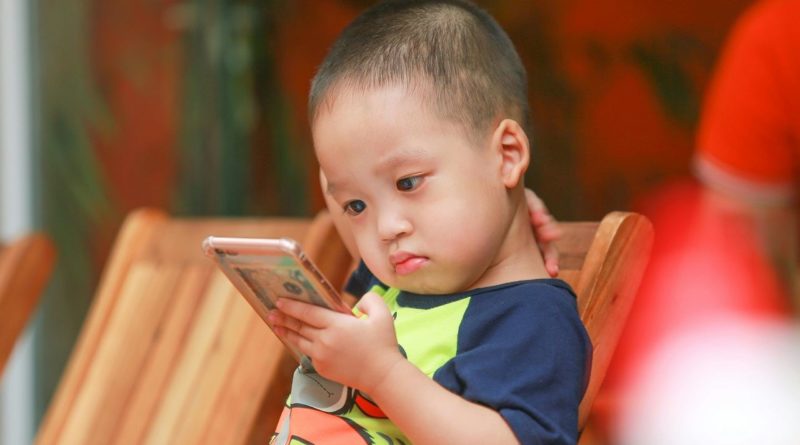




This article summarises very well the problems and challenges with smartphones for children. I don’t think I’ve heard many adults who lived in a smartphone-free era wish that they had ever had one as a child. Rather, our generation realise how great it was to live with automany and to experience life in the real world.
Children can be safe with a more basic phone for messages and calls. And parents need the support from secondary schools and the Government to back this up.
Hear hear. Thankfully, more and more headteachers have read Jonathan Haidt’s The Anxious Generation and are ensuring smartphones are kept in lockers throughout the school day or not allowed on site at all, making it easier for parents to give their child a smartphone alternative instead.
society pressure is getting worse ! parents need to set boundaries and stick to them
I’ve witnessed the pressure to give your child a smartphone as they start secondary school. Literally all my kid’s classmates had one in year 6. I agree, no one wants to be left out. I wonder if deep down many parents worry that their child will be ostracised among their peers if they don’t have one. If the real reason was that we want our kids to be contactable then all they really need is a dumb phone, right? However that’s not what the vast majority are handing to their kids.
As adults we may be ok with standing out from the crowd on this issue but how many of us would be comfortable with letting our child be the odd one out in a high school environment and all the ramifications that would hold for them?
Love the idea of Smartphone Free Childhood. We need groups of parents to join together to give each other and our children courage to live differently. Educating parents and kids is absolutely key.
Thanks for your reply, Beccy. You’re absolutely right – it is difficult to be the child that doesn’t conform but I think that if enough parents commit to delaying smartphones, it needn’t be such an ask of the child.
yes absolutely, buy them a ‘dumb’ phone to keep tabs on them for any safety concerns
Really interesting – lots to think about!
It’s such a hard decision but I think everything in moderation is key.
There is so much pressure on having the latest smartphone nowadays – it makes you wonder how we got to this point in society!
Exactly. we have let Big Tech slide into our lives – their profits have soared but has society really benefitted?
Social pressure is definately worse, you have such a pressure to fit in!
We relented and gave our 10yr old a phone but this was only because all her friends had one.
We have total control over it and limit her time on it. There’s no social media allowed and we check her history to see what’s she’s been looking at. In fairness to her, it’s usually games she’s been playing.
She understands why we’re strict and has no problem with this. I suspect this may change as she gets older.
Yes it is time to ditch for children under 12. Children need to express themselves and play with friends to learn how to interact in later life. Staring at a screen all the time isn’t good for their wellbeing.
most things in moderation should be ok but not everything
kids should not be under pressure at a young age because this could lead to there brain developing in the wrong way
this is quite shocking and interesting what the tech giants do with their own kids
It’s really telling, isn’t it? The big tech CEOs line their pockets whilst our children (but not theirs) suffer.
We have a smart safe,where our tech gets locked away so less time on social media/phones
That’s great! Is it for the adults too? I’ve done Smartphone Free Sunday for about six months now but I’m always looking for more ways to model good practice to my children.
I’m a member of our school’s Smartphone Free Childhood group. I only found it after I caved to Yr6 pressure (‘I’m the last one to have one mum!) and gave my child one of my old smartphones. However they have no social media at all on there – no WhatsApp/ Insta/ Snapchat/ TikTok and we have Google Family Link to approve apps etc. Now in Yr 7 and the real divide is not smartphones vs bricks it’s social media vs none. They are a bit left out of all the online socialising but they’re so not mature enough to navigate it yet that I don’t regret holding out.
It’s a difficult one personally i don’t agree that children under the age of 13 years old should be given a smart phone but of course there is also the pressures of fitting in with their peers which puts pressure on the parents to buy them one.
It’s such a tough call to give children technology that we have so little control over but I think safety measure are getting better and we should be able to embrace new changes in socialising without forgetting our real life interactions
No!
My daughter is 12 and has a smart phone and when she is banned off it she is a much happier child, I restrict it as much as possible now
Kids don’t need smartphones just a basic mobile for calls and texts.
Yes for the under 16s definately